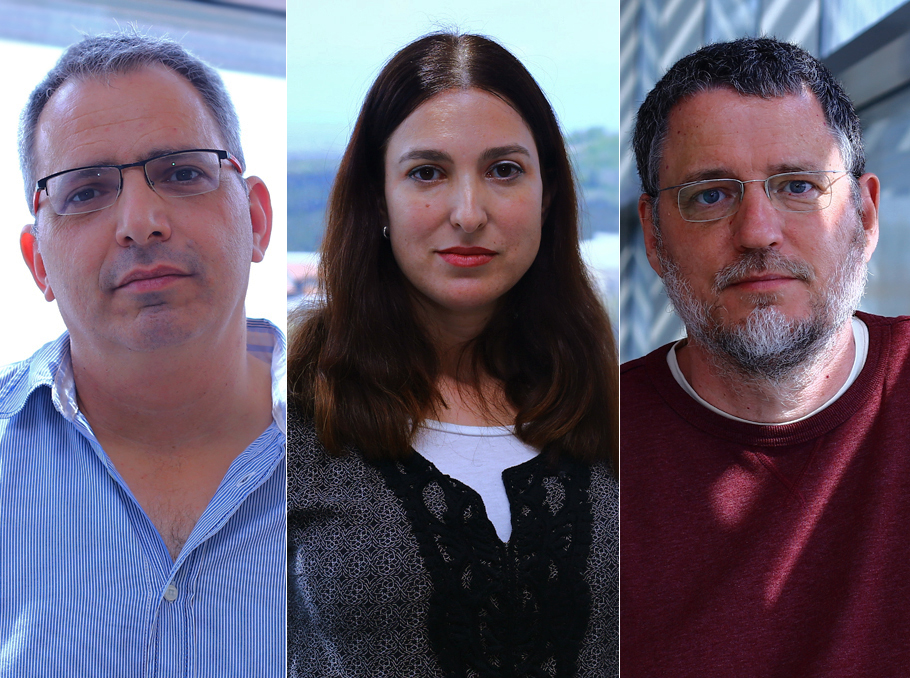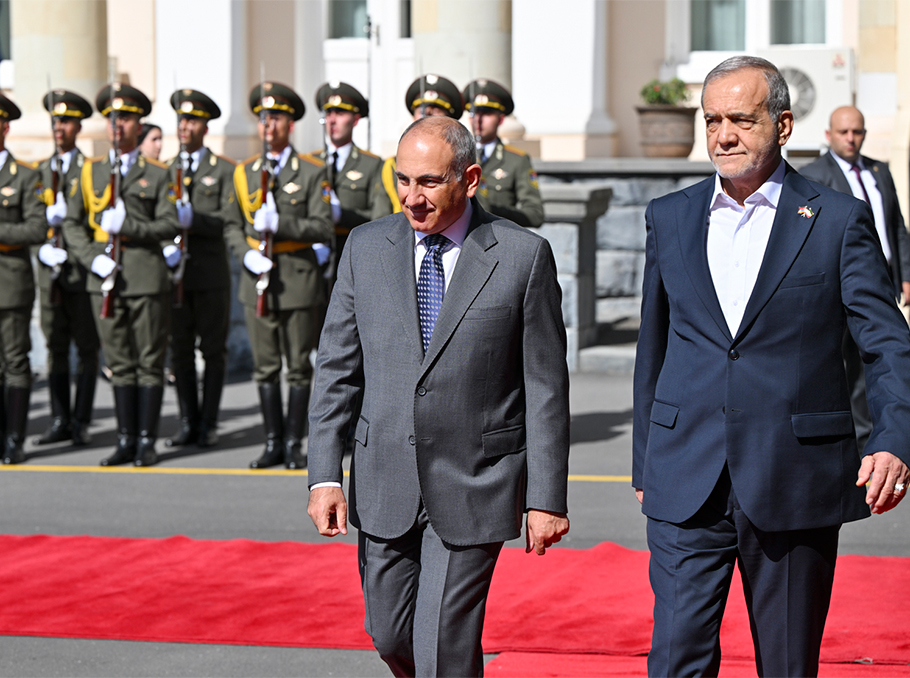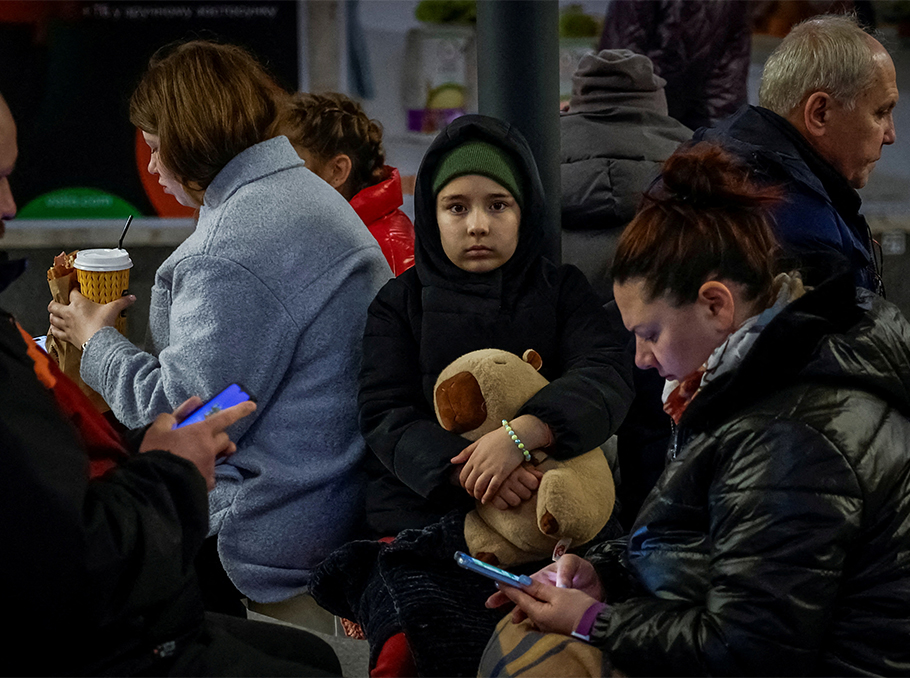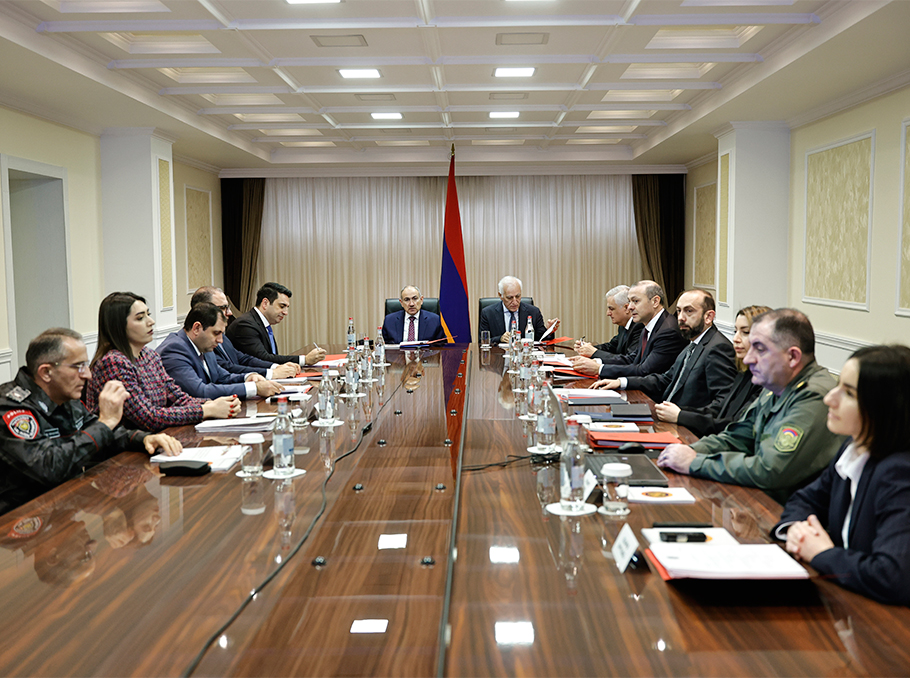On April 13 and 14, Armenian and Israeli scholars held panel discussions on the topic of “Genocide in literature” at American University of Armenia.
Mediamax talked to some of the Israeli participants.
Yael Ben-Zvi Morad
Dr. Yael Ben-Zvi Morad is a researcher of Israeli and Palestinian Cinema and Literature. She teaches at Ben-Gurion University of the Negev and is the author of the books “Patricide: Gender and Nationalism in Palestinian Cinema” and “Wedding in the Snow”.
It was the first time I was exposed seriously to the Armenian Genocide. Now I realized and found it fascinating to be exposed to Armenian Genocide, the way it is memorialized here. I am very interested in Atom Egoyan`s work; his films, especially the one about the Genocide, contain both trauma and gender. His films are making a good service to Armenians. I am really curious about learning and studying more about Armenian Genocide. It is really worth it. It is a strong experience for me to be here, to visit the museum, to talk to people. All this is very impressive.
I think The Holocaust and Armenian Genocide are two different traumas. The Jewish people gained power from the trauma, our first president David Ben-Gurion sort of used The Holocaust, not badly. He understood one important moment in history. When The Holocaust was finished and we were under the British occupation in Israel, this was about to be a historical decision whether we would gain independence or not. And he managed to raise The Holocaust as a main issue, to convince the world that we need independence, an army, we need to protect ourselves. So this historical moment was fully used.
And what I heard here is Armenians looking for ways to gain power, to convince the world of their rights after the genocide. I think we should use every opportunity to learn from each other.
I am not sure if I am right, but I think that Armenians were too quiet about this issue for many years, I mean they were not busy with collecting names of victims, or convincing the world, building museums and the Jewish were really into it from the very beginning. We managed to make the memory stronger, or detailed. The Armenians continued, and we stopped, now we want to continue, and you want to stop.
I have found some resemblance of Armenian Genocide issue to the Palestinian case. There is Al-Askari Golden Mosque in the centre of Jerusalem which has become an issue of who rules it, whether Israel or Palestine. Every time I hear this case I remember Ararat mountain.
I am not a historian, I teach literature, but I can state that Israel does not recognize Armenian Genocide because the Holocaust was really something huge, and Jewish people think that the comparison of it with other genocides would make their issue smaller. By that step they want to preserve their uniqueness without any competition. The Holocaust was not just a genocide, it was a system.
The other reason is political, the relationship with Turkey and the way to earn money from selling weapons.
Tourism is one of the best ways to build bridges. Maybe I will surprise you, but most of people in Israel have not heard about Armenian Genocide, they know nothing about this issue. I would like a linked and developed tourism system between our countries, so that people could come and see this beautiful country, and become aware.
When some of us chose to come here today, we also made a political decision to show our identification with Armenians and against our government. By coming here, we protest against our government. But we have chosen an academic way, we can write about the issue, use the world of cinema, literature, this is our weapon. This is not a loud but a quiet, sophisticated voice.
Roy Greenwald
Roy Greenwald teaches Modern Hebrew and Yiddish literature at Ben-Gurion University of the Negev. Currently, he works on literary presentations of the Pogroms in Yiddish and Hebrew Literature of late 19th and early 20th century.
It is more important to talk about genocides in the country of perpetrators. The nations with the experience of the genocide carry a moral burden to see how we can prevent another genocide not only in our place, in our country but also to others. Jews have to speak about the genocide of the Armenians, and you have to talk about ours.
The Holocaust and Armenian Genocide developed in two different ways, but surely have much in common. Jews became very powerful aftermath of The Holocaust, and Armenia was occupied by the Soviet regime. But we should draw a universal message from this and here is one of the resemblances.
I do not know much about Nagorno-Karabakh but I was surprised that the discussion on the Nagorno-Karabakh issue was connected to Genocide. It is understandable but quite surprising.
Morally speaking, there is no question, but politics is a question of interests. Everybody knows that it has been a genocide. I cannot justify it and I am ashamed of it but Turkey is a strong state in the region, and Israel needs Azerbaijan in order to face Iran. For these very reasons, it has just been decided not to acknowledge Armenian Genocide. It is morally unacceptable, but politics is immoral.
Peter Sh. Lehnardt
Dr. Peter Sh. Lehnardt, senior lecturer of Hebrew Medieval Literature with research focuses on Hebrew liturgical poetry and secular genres common to majority cultures of the Christian hemisphere around the Mediterranean.
We have our small Armenian enclave in the old city of Jerusalem, it is very exotic, it is not very communicative, there are not many people who are ready to talk to you, every time you get a feeling of being a tourist in your own country. And then you come here and see people with self-confidence, with their culture and history. I was told yesterday that Armenians are saying that they are Christians, even if they are not baptized.
The biggest problem is traumatization and encapsulation, they think this is only our story, this is untellable, indescribable, and nobody cares about you. The idea that the issue is unique and it has happened only to “me” is the reason why it is still a problem for Israel to recognize Armenian Genocide. “We” think that only our fathers died, so this is a physiological encapsulation you are unable to cope with. Encapsulation is better for political use.
Our State is on the third or fourth place of military export. It is a national disaster, because if you put so much weapon into the world it becomes so easy to use it. It is a question of time. Bloody business, that’s what it is.
First of all, genocide is a problem of the modern world, because it has become too easy. Countries and cultures become blind to other countries and cultures. The problem is that we are not used to live in a mixed population. We have different groups in one state, in one neighborhood. The other is also a human, he has a wife, a mother, a father, a child, we use the same buses and share swimming pools. One side destroys churches, the other side destroys mosques, they burn books written in other language.
Lena Gevorgyan
Photos: Mariam Loretsyan





















